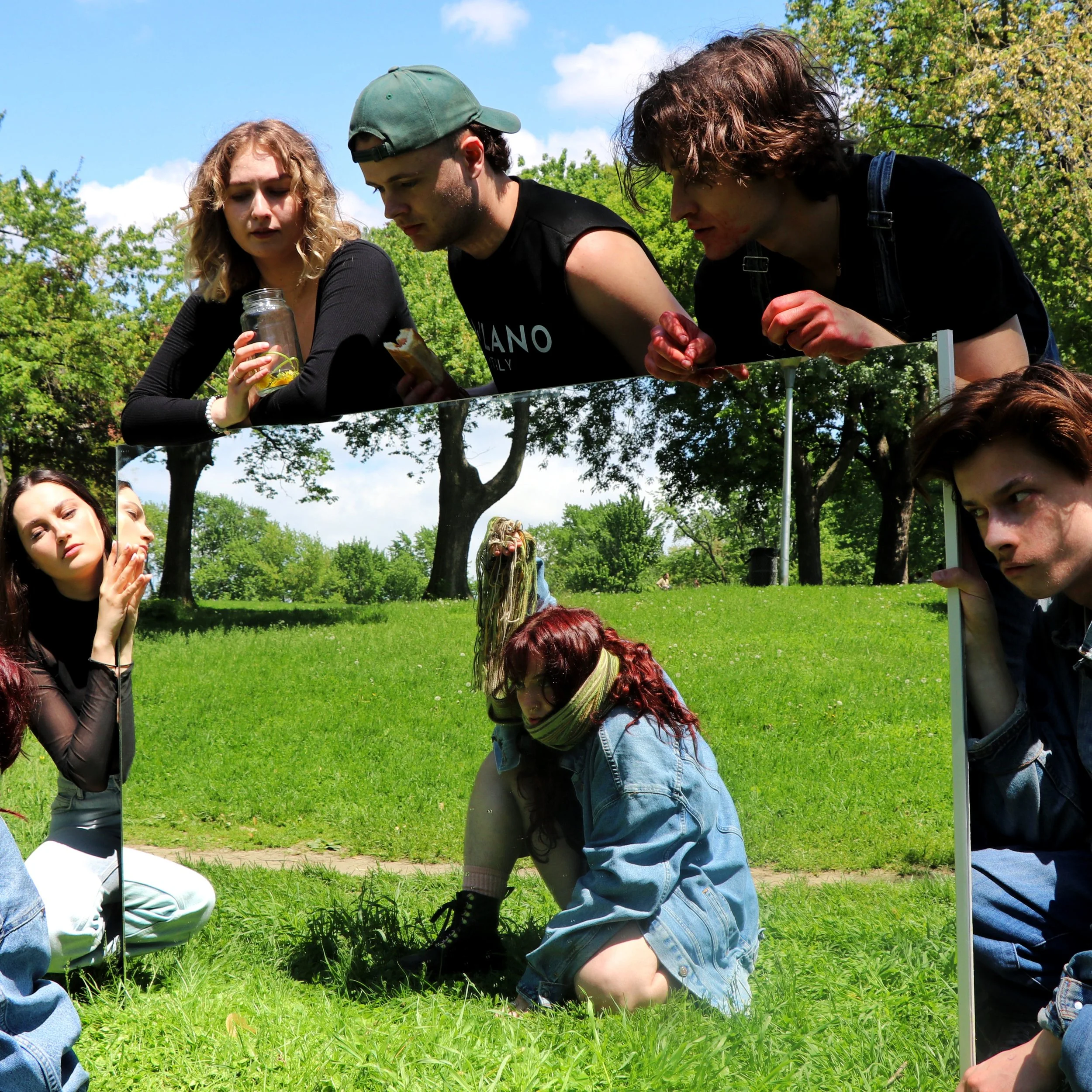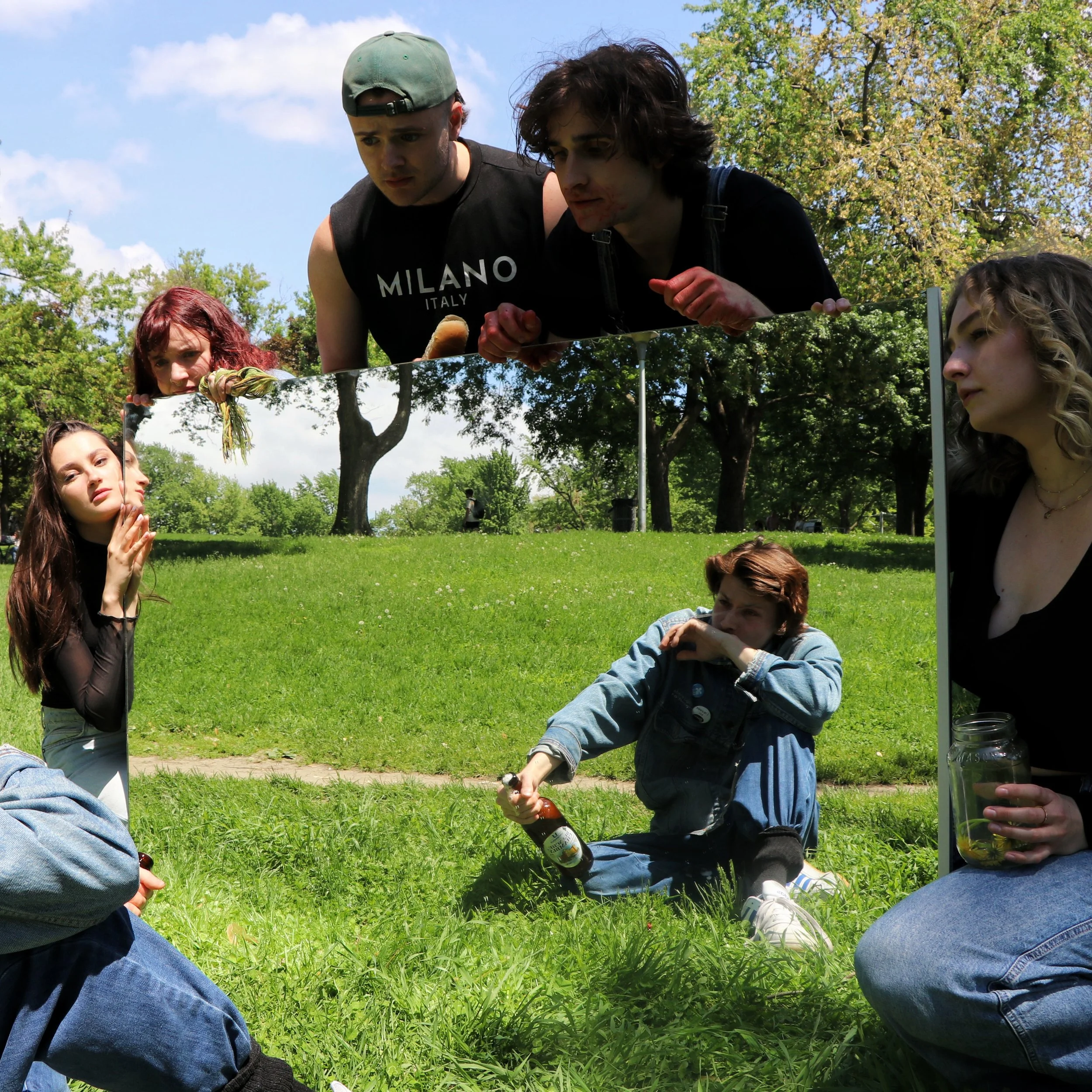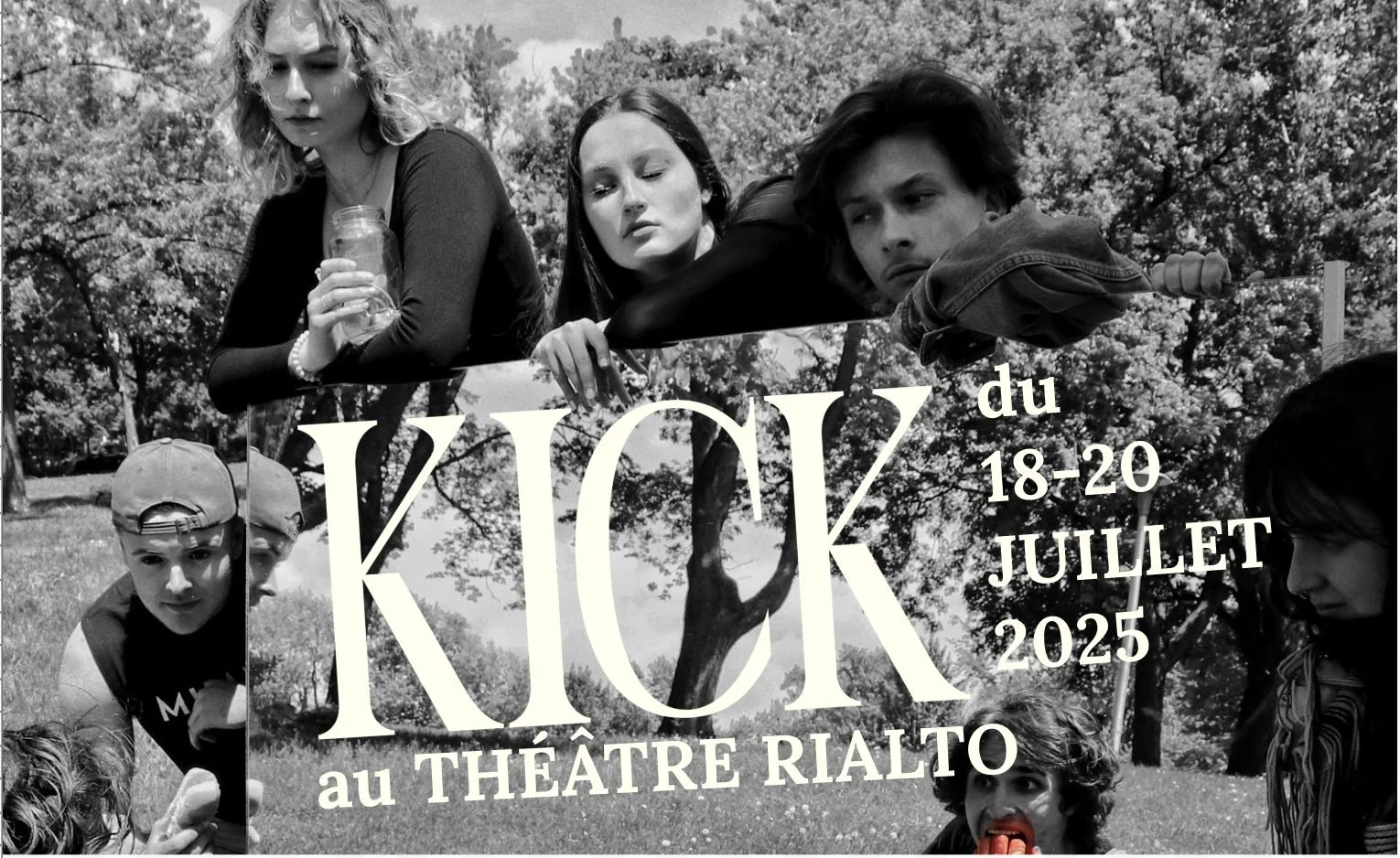Low Stakes, High Passion
Kick and the Unapologetic Nature of Indie Theatre
In a Montreal theatre scene that can often feel burdened by predictability, a new production is busting down the doors with raw passion and an unbridled spirit. Étienne Lepage’s Kick, presented by Les Productions Syncope in partnership with the Rialto Theatre, isn't just another play; it's a testament to the power of out-of-pocket producing and the fierce dedication of emerging artists.
Nathan Bois-McDonald, producer, co-director, and actor in Kick, shared candid insights with me into the project's unconventional birth, echoing a sentiment that resonates deeply within the independent arts community and, frankly, with my own philosophy: maybe just do a fucking project. This aligns perfectly with my long-held belief that artists should embrace the mentality of "Fuck Grants, Do Crime" when necessary, prioritizing creation over waiting for the blessing of traditional gatekeepers.
When speaking with Nathan about the production, I wanted to take it back to the beginning, first asking him about the initial spark, the catalyst for the project.
”I wanted to create something. I took a grant writing workshop with Jesse Stong at PWM (Playwrights Workshop Montreal), and it highlighted that to start taking control of my artistic life, to some extent, it was to produce my own art and explore my own practices through arts grants. I decided to produce a play after wanting to write a grant, and to write the grant I needed to put together a team and find a play and a place to put it on.”
Applying for grants is a daunting process. Whether it’s your first grant, or your 15th, the system is designed to make you give up. What were your goals and expectations with your first application?
“I applied to get $7,000 from Montreal, Quebec, and Canada Arts Council. None of them worked out, understandably, but my goals were grand, and I didn't want to undershoot my objectives. I still don't really know how to get my first grant... maybe just do a fucking project!”
This "no-budget” indie theatre approach, producing "out-of-pocket", carries its own set of challenges, a reality Nathan describes as initially "frightening". Yet, the experience has transformed into one of resourcefulness and community support. The Rialto Theatre, for instance, offered a generous donation of free rehearsal and performance space, a typically massive investment.
Speaking with familiarity, this method of producing is not for the faint of heart. How would you describe your experience so far?
“It was definitely frightening at first, but I think we're past that point. We want this to be an amazing experience and are glad to have gotten the generous donation from the Rialto Theatre for free rehearsal space and free performance space. We're just hiring the staff and the audio visual technicians. We're trying to balance our investments, but it is spectacular how much free shit people are willing to donate—set design for example, costume pieces from wardrobe, props from home, competing with thrift store and marketplace prices. We're not going to make any profit from this project, but we're adding to our CV, we're creating a project the way WE want it, we're collaborating with other emerging artists and we're exploring our practice.”
This is wildly important, adding to your CV, gaining that experience with production. Most funding bodies necessarily lean toward the artists who have made some shit, artists who are somewhat established.
“Exactly! If I were a member of an arts council I wouldn't give me $7,000. I'd tell myself to go make something out of pocket (maybe Fringe) or in public (basically my biggest investment is my time) and learn how to make art I like before asking to get paid to do so.”
What has been the most limiting aspect of producing within this structure that you've encountered so far?
“We can't ask people to be available for all rehearsal hours because we can't pay them. Organizing the schedule is a logistical nightmare. We have our rehearsal space and show space, which is a huuuuge investment usually, and all our artists are pro-bono, so the only big hassle has been to find time.”
Are there any aspects of the production process that you've found to be more enjoyable with the freedom of out-of-pocket funding?
“Yes! Very low stakes with very high passion. We're here to explore. It feels like a self-initiated lab with like-minded creatives towards developing a creative vocabulary to help us become creative collaborators. We're also not relying on this show being commercially successful in order to prove to an arts council that we can make some of our money back.”
The freedom you have in the creative process really makes itself apparent in exploration and collaboration. At the centre of my own practice is the philosophy that “the process is superlative to the product”. Making the thing is really what matters. How you do it, and who you do it with. Talk to me about the creative team you’ve assembled for Kick.
“My co-director, Fanny-Maude, I reached out to first because I knew she would be off school this summer (studying at the Conservatoire d'art dramatique de Québec) and because she is a very good friend of mine. I knew that I wanted to work with people I get along with so that the creative process would be free and playful. I then invited William on the team after having met him at an improv night, and he in turn suggested Alizée, who studied theatre with him in St-Hyacinthe. Fanny-Maude invited her classmate Noémie-Jade along, and to complete the team, we needed a guy who had a different energy from me and William. I immediately thought of Matisse Lavoie Henry, who's going into 3rd year at l'École Nationale de Théâtre, with one of my longtime friends Tristan Beaupré. Our costume designer is Arianne Fauteux, and our set designer is Juliette Lamoureux. We also have Vincent Stafford, jazz guitarist, joining us on stage for live accompaniment and ambiance throughout the play!”
The team has an incredibly diverse background, in terms of education and training.
“They are all newly graduated from a theatre program or are about to graduate and are hungry to create and collaborate. When starting out—and I can imagine at times throughout my career—it is clear that I need to provide opportunities for myself to both practice my art and to maintain my creative momentum. My castmates are all in very similar positions in that they want to be on stage, they want to practice their art and share their ideas and collaborate on a piece that is fun and thought provoking. They all resonated with Kick by its raw humor and unapologetic Québécois French.”
Étienne Lepage's Kick is a provocative and unflinching exploration of youth, presenting fragmented glimpses into the raw and often unsettling inner lives of young people. Since its 2010 premiere in Montreal, the play has earned significant critical acclaim, and has had a lasting impact on contemporary Quebec theatre. Let’s talk about the play itself. What can the audience expect?
“We're entering a coming of age limbo, where six young adults explore their lives and ideas of themselves by telling stories and exploring ideas in a rapid stream of consciousness. We've built this non-location to represent the way we perceive ourselves, so mirrors become a main part of our set design and characters mirroring each other's physicalities and emotions and expression fill the stage to highlight the inner life of each character. We wanted to use this piece to explore the question: how do we think of the version of ourselves we project to others vs the one we truly feel inside? I consider it to be a synthesized version of ensemble theater where characters assist each other through imagery and chorus work.”
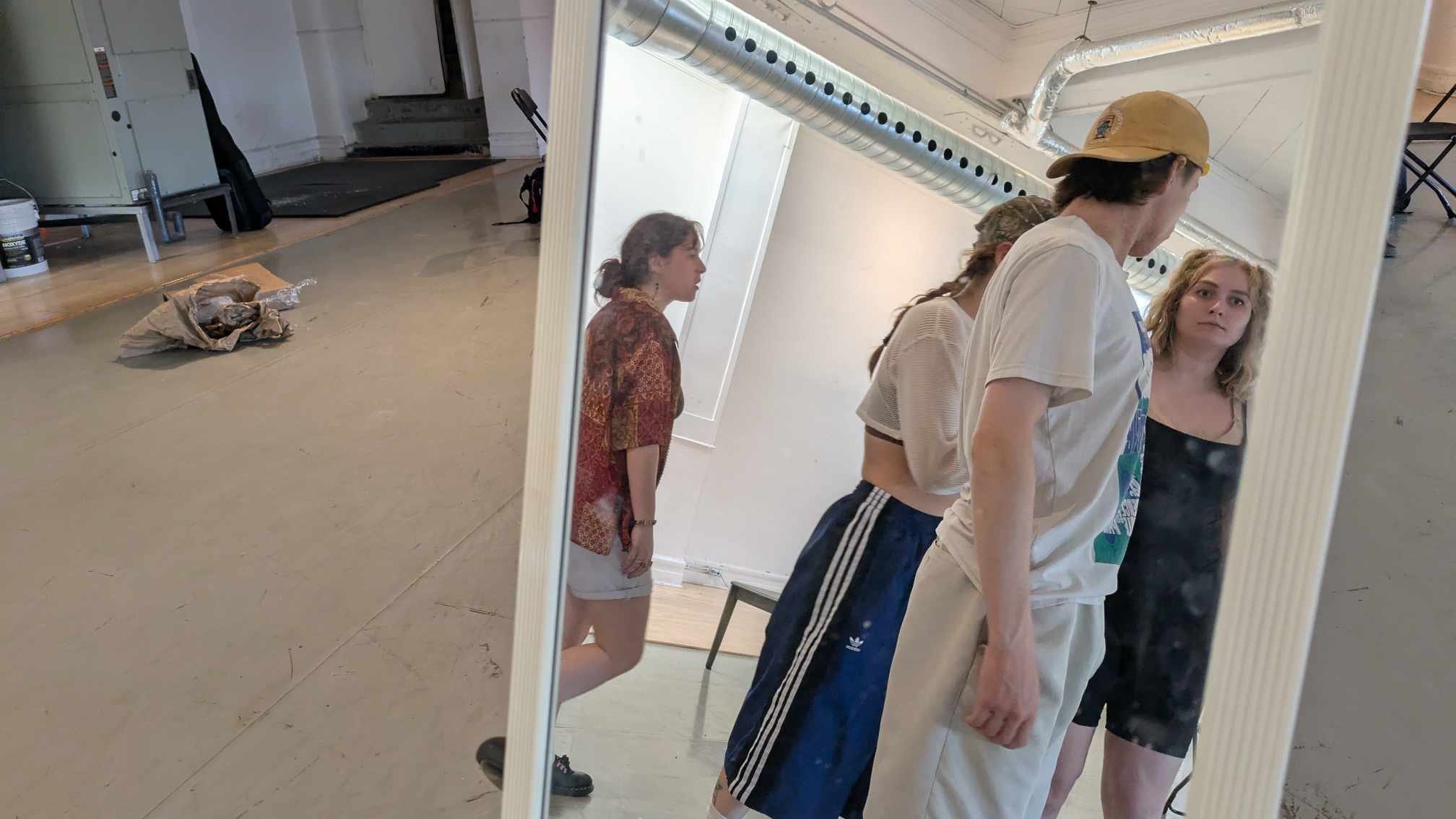
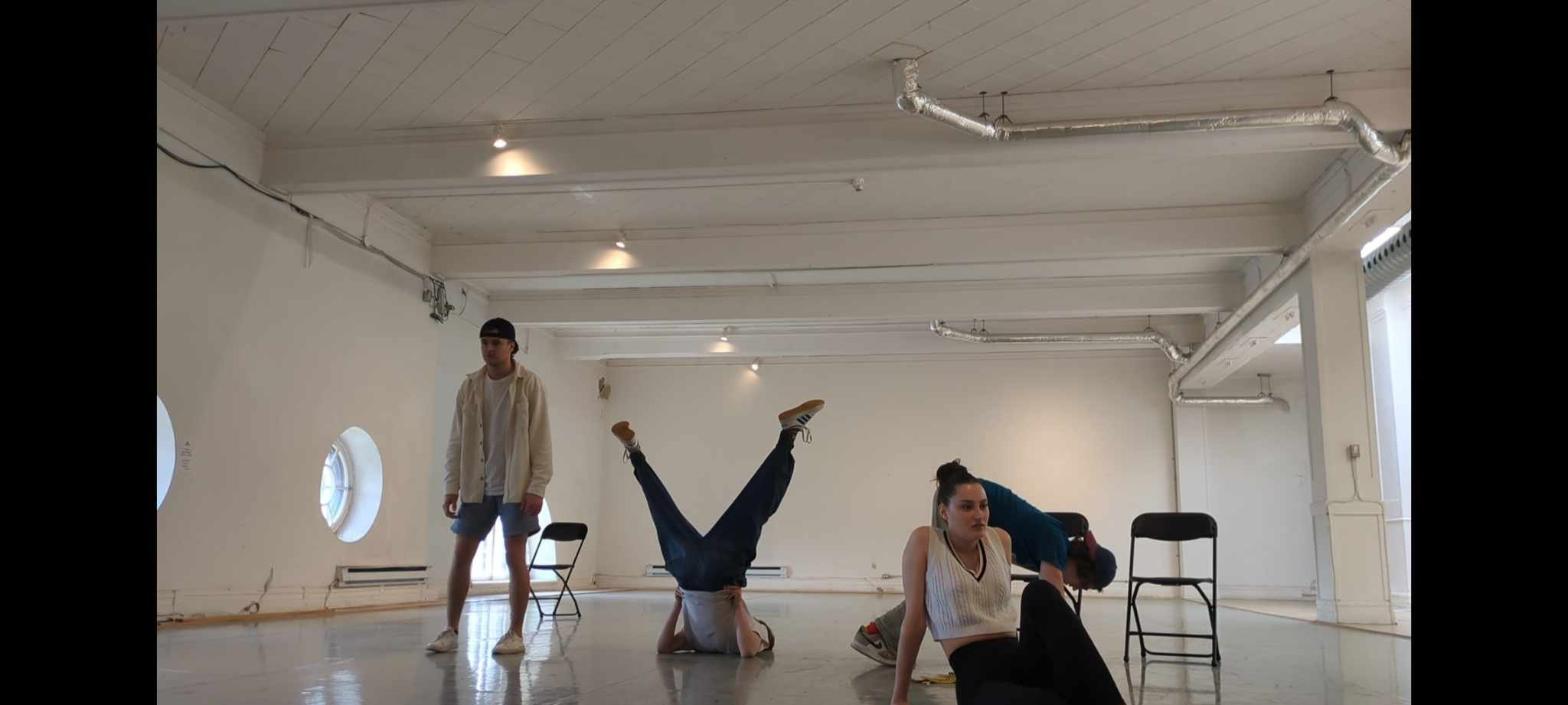
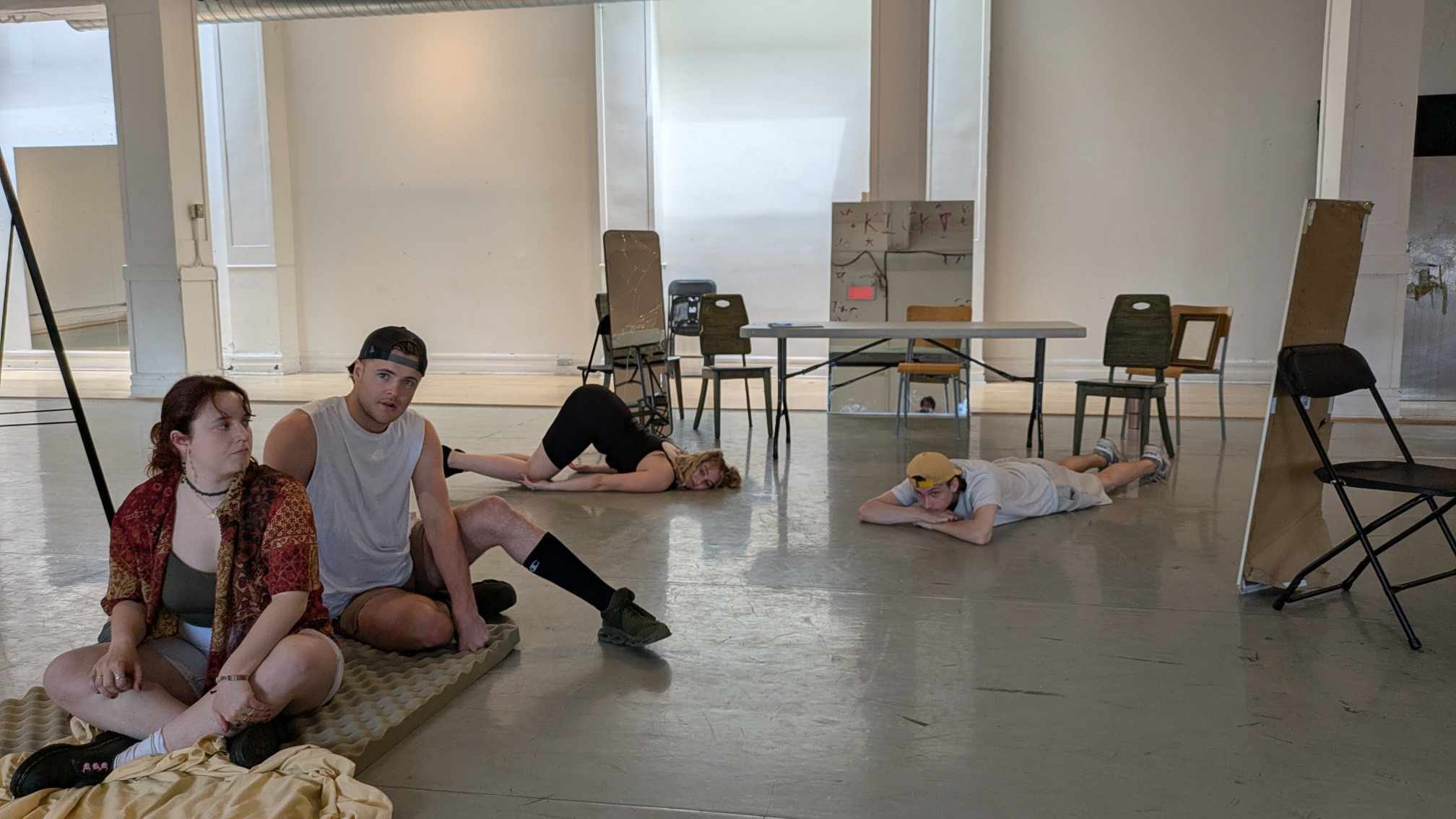
This kind of passion-driven, artist-led initiative is precisely what electrifies Montreal’s arts scene and challenges the status quo. Kick embodies the spirit of risk-taking and artistic exploration that independent productions offer, free from the pressures often associated with grant-funded projects. Theatre, at its core, is about the love of storytelling, and this production further reinforces the vital importance of artists simply doing it because you fucking love it.
Where you stand now, as you race to your premiere date, would you do it again? Would you produce another production out-of-pocket?
“Definitely. As I said, this is the way I can continue working on projects that call to me, and not be entirely reliant on the rest of the industry to pursue my art. I adore bringing other people's ideas to life—it's extremely validating to help someone concretize their vision—but I am also a creator and believe that this is the best way for me to balance my career.”
This production of Kick stands as a powerful example of Montreal's vibrant independent theatre community in action. It's a reminder that true artistic innovation blossoms where passion outweighs profit, and where emerging artists are given the freedom to explore, experiment, and tell stories on their own terms. As audiences, we have the crucial opportunity, the responsibility, to support these vital projects, to step into these spaces where the rules of traditional theatre are rewritten, and to witness the unfiltered creativity that defines the future of our arts landscape.
Don't miss the chance to experience Étienne Lepage's Kick at the Rialto Theatre, July 18th, 19th, and 20th, 2025.
Get your tickets NOW at Le Pointe de Vente.
If you’re reading Forget The Box, you’re a supporter of free, independent arts coverage. We ask you to take a moment to consider donating $1 to help us continue our mission to spotlight ground level, underground, and marginalized art in Montreal. Every little bit helps.

